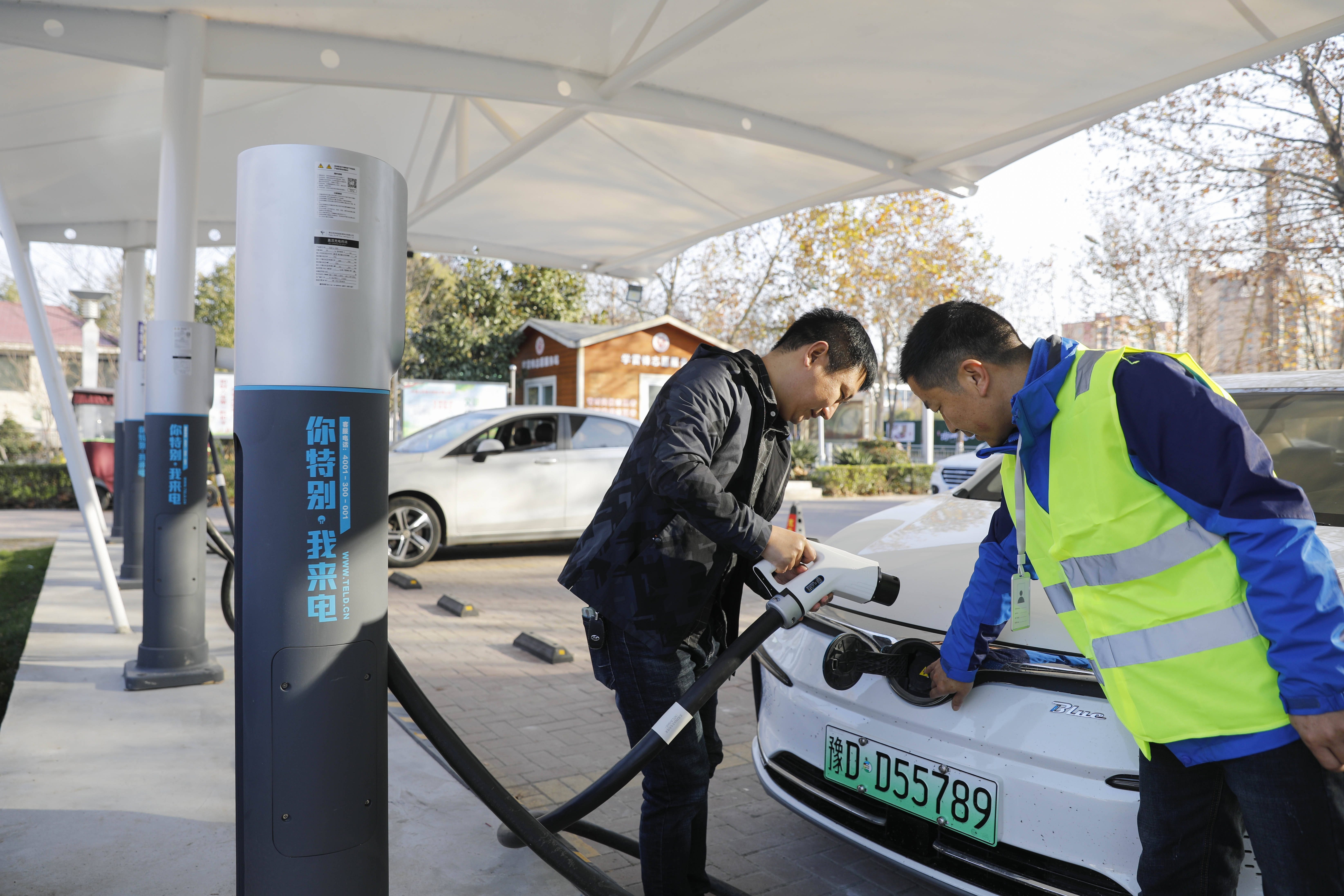 Bridging News
Bridging News
Energy Saving | Eyes on China's EV
Chongqing - “Energy Saving” appears in the keywords pool from overseas users’ searches of Chinese electric vehicles, according to the past 30 days’ analyzed reports from Meltwater’s data retrieval. Energy remains a key force in electric vehicle (EV) development, whether in China or other parts of the world.

China’s EV charging station in a small county of Henan province. (Photo/Xinhua News)
Extensive charging network to alleviate range anxiety
China’s rapid advancements in the EV sector have captured global attention, largely credited to its robust government support, a typical Chinese development that differs from many countries.
Two pivotal policies have propelled this progress, including infrastructure construction and purchase subsidies. The Chinese government recognized the importance of establishing an extensive charging network to alleviate range anxiety, enabling EV adoption to flourish.
Moreover, generous purchase subsidies significantly lowered the entry barrier for potential EV buyers, fostering mass adoption and industry growth.
Chinese officials and experts underscore the energy security aspect as a critical driver for EV development. With 71.2% of oil dependent on imports, China’s vulnerability to global oil price fluctuations poses economic risks. With recent geopolitical events increasing anxiety, the Chinese government acknowledges the need to transition to domestically sourced energy alternatives, such as electricity, to reduce reliance on foreign oil.
In addition, China’s commitment to the “Double Carbon” strategy, aiming to achieve carbon neutrality by 2060, aligns with its fervent support for EVs. Replacing internal combustion engines, EVs offer a direct route to reducing carbon emissions in the transportation sector.

A bare hill was turned into a photovoltaic power base in Hebei province. (Photo/Xinhua News)
Critics argue that EV adoption could amplify coal-fired power consumption, particularly for a country like China, which generates electricity mainly from coal. However, China is also developing fast in renewable energy.
Data shows that, in 2022, China’s coal consumption accounted for 56.2% of total energy consumption. Ten years ago, this number was 68.5%. Clean energy sources like natural gas, hydro, nuclear, wind, and solar power accounted for 25.9% of total energy consumption, compared to 14.5% in 2012.
Old giants’ “now and then” moment
Though developed very fast, European and American EV markets have lagged behind China due to various factors, including regulatory hurdles and infrastructure challenges.
“Germany is eager to transition, but technological progress is not swift enough, and there is some management and workforce inertia towards mindset shifts,” said Dr. Feng Yumign, a Professor at the Ocean University of China who obtained a Ph.D. degree at Kiel University, Germany, in an interview with Bridging News. “The accumulation of technology, especially in battery technology, is not particularly evident.”
Dr. Feng added, “In order to ensure profitability, they have entered a new model of investing in Chinese companies to establish factories for electric vehicle production.”
Some evidence proves such a saying. This July, Volkswagen pledged to buy 4.99% of the A-share of Xpeng, accounting for 700 million USD. With Ford cooperating with Changan, they established a new joint focusing on EVs.
Following the outbreak of the Russia-Ukraine war, Europe’s realization of the critical need to accelerate EV development has gained traction. The geopolitical tensions and energy supply disruptions stemming from the conflict underscore the vulnerability of traditional fossil fuel dependence.
The European Union’s commitment to reducing greenhouse gas emissions and achieving climate goals has taken on renewed urgency, prompting a stronger emphasis on EV adoption.
(View the previous article of the series: Power Battery丨Eyes on China’s EV)
 Related Stories
Related Stories